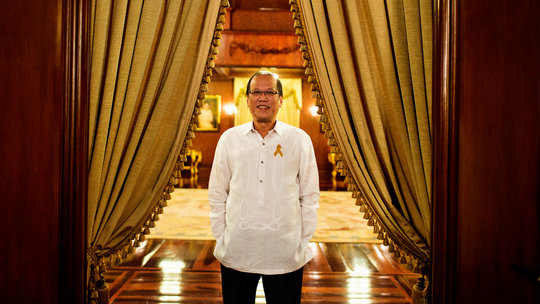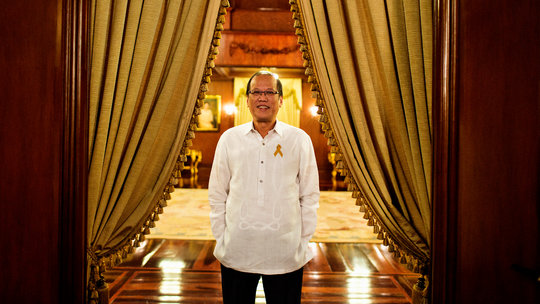By ELLEN T. TORDESILLAS
IN a meeting with Vietnamese Defense Minister Gen. Phung Quang Thanh in August last year, President Aquino asked the visiting official how they are able to maintain good relations with China despite conflicting territorial claims.
( Despite a ferocious battle over the Paracels Islands in the South China Sea 40 years ago that killed more than 70 Vietnamese soldiers,China and Vietnam established a hotline to deal with fishery incidents in South China Sea waters following the meeting of Chinese President Xi Jinping and Vietnamese President Truong Tan Sang in Beijing last June.
Thanh told Aquino that almost every day, personnel of Vietnamese Navy battle Chinese fishermen who venture into disputed areas in the South China. Arrests are made, diplomatic protests are filed. But, he said, “We don’t talk to media.”
For a while, Aquino seemed to have taken to heart the lesson from the Vietnamese defense minister. He was a voice of moderation when of China’s sole aircraft carrier sailed to the South China Sea.
Even when the foreign office said the aircraft carrier’s presence in the West Philippine Sea raises tension, Aquino said, “Let’s not play it up. I think the Chinese themselves have admitted that this (Liaoning) is not yet fully operational. ”
He kept his mouth shut when a Philippine newspaper reported that the Chinese ambassador said China will be establishing air defense identification zone or ADIZ over the West Philippine Sea. It was a wise decision because the report turned out to be erroneous.
But during the interview with New York Times last Tuesday, he changed demeanor and likened China’s leaders to Hitler.
In the article titled “Philippine Leader Sounds Alarm on China”, NY Times said Aquino “called on Tuesday for nations around the world to do more to support the Philippines in resisting China’s assertive claims to the seas near his country, drawing a comparison to the West’s failure to support Czechoslovakia against Hitler’s demands for Czech land in 1938.
“Like Czechoslovakia, the Philippines faces demands to surrender territory piecemeal to a much stronger foreign power and needs more robust foreign support for the rule of international law if it is to resist, President Aquino said in a 90-minute interview in the wood-paneled music room of the presidential palace.
“If we say yes to something we believe is wrong now, what guarantee is there that the wrong will not be further exacerbated down the line?” he said. He later added, “At what point do you say, ‘Enough is enough’? Well, the world has to say it — remember that the Sudetenland was given in an attempt to appease Hitler to prevent World War II.”
Agence France Presse reported on the NY Times story with the title “Philippine leader likens China’s rulers to Hitler.”
China’s Foreign Ministry has not issued a reaction on the provocative statement which could be an indication of how serious Beijing is taking it.
Another indication is a commentary by Xinhua writer Ming Jinwei calling Aquino “amateurish politician.”
The strongly- worded Xinhua commentary said “ Aquino, who has taken an inflammatory approach while dealing with maritime disputes with China, has never been a great candidate for a wise statesman in the region.”
Considered semi-official, the Xinhua commentary also said by comparing China to Nazi Germany, Aquino “exposed his true color as an amateurish politician who was ignorant both of history and reality.”
Usually a New York Times report is something makes Malacañang proud and happy. This time, they are acting defensive. Last Thursday, immediately after AFP story came out, Presidential Communications Operations Office Secretary Herminio Coloma said, “There will be no move on our part to explain (Aquino’s statement).”
Yesterday, Coloma had a lengthy, convoluted explanation when all that he wanted to say was it was not the intention of Aquino to offend Chinese leaders. “As a storyteller and as a conversationalist, the President often gives details of a particular situation so it could’ve happened that he was simply citing the fact that there was such incident,” he said.
Lawyer Harry L. Roque, Jr. who is director of the University of the Philippines Law Center Institute of International Legal Studies, said Aquino’s “Hitler” comments were “Totally uncalled for. “
He added: “While the Chinese maybe expansionists, they are certainly not genociders. The President, because we have initiated Arbitration, should no longer comment on the issues. Certainly calling our Chinese neighbors Nazi does not bode well for peaceful resolution of the dispute.”
Former diplomat Apolinario “Jun” Lozada, who headed the committee on foreign affairs when he was a congressman representing the 5th district of Negros Occidental, said, “It is a very unfortunate statement and I can only hope that it is not a basis of our international relation policy toward that country.
“I seriously believe that despite our serious political differences, we should endeavor to keep our bilateral relations and find the right approach to convince China to sit with us in the negotiating table to ease the problems and contribute to the stability and peace in the region.”
Former Ambassador to the United Nations Lauro Baja,Jr. said “The ‘Hitler statement’ of Pres. Aquino was unfortunate and should have been left unsaid. Now we are on the defensive again trying to explain what the President meant to say. “
Baja reminded Malacañang that the territorial dispute with China is now in the United Nations Arbitral Tribunal and “statements like this may be taken into account by the judges one way or another.”
Baja said the Philippines should be more specific on what international support we want. “
Otherwise we will be deluged with motherhood statements in their replies, even from so called allies.”
Lastly, he said, “ We should refrain from engaging China with tit for tat statements. After each tat we make on WPS, China will tat with actions showing that they exercise ‘effectivities’ in the area. Then we can only protest. We must be able to discern the difference between rhetoric and reality.”

